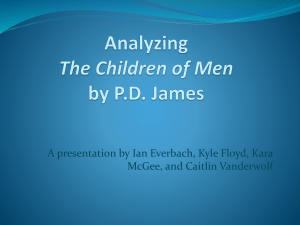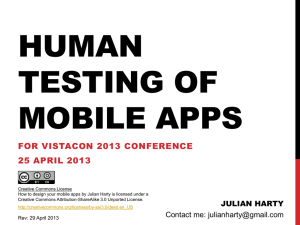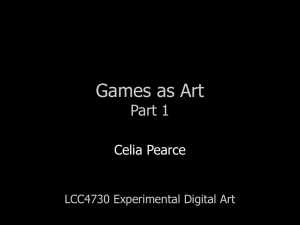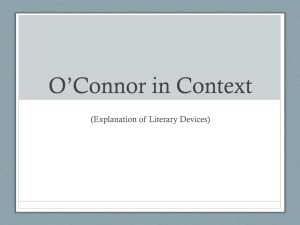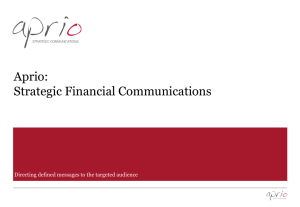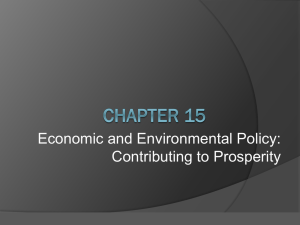Document
advertisement
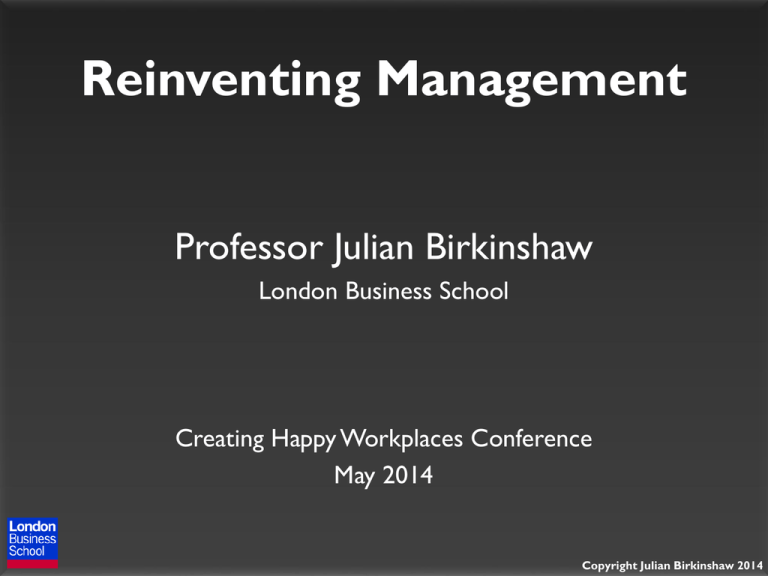
Reinventing Management Professor Julian Birkinshaw London Business School Creating Happy Workplaces Conference May 2014 Copyright Julian Birkinshaw 2014 Who are you happiest with? Friends 3.3 Parents/relatives 3.0 Spouse 2.8 My children 2.7 Co-workers 2.6 Clients/customers 2.4 Alone 2.2 Boss 2.0 (Rating is on a 1-5 scale) Copyright Julian Birkinshaw 2014 What problem was management invented to solve? • How to routinise and standardise work? • How to maximise employee discipline and diligence? Copyright Julian Birkinshaw 2014 What are today’s management challenges? • How do we change fast enough to stay relevant in a turbulent world? Agile • How do we innovate boldly enough to stay ahead of our competitors? Innovative • How do we create an organisation where people are able and willing to do their best work? Engaging Copyright Julian Birkinshaw 2014 Koontz & O’Donnell, Principles of Management, 1955 Copyright Julian Birkinshaw 2014 Broadening our concept of innovation FROM NEW PRODUCTS AND SERVICES TO NEW WAYS OF WORKING Copyright Julian Birkinshaw 2014 Reinventing management at HCL Technologies • Employees first, customers second • Value is created by clientfacing employees • Managers and support functions serve them through: – Open 360º feedback – Smart Service Desk – You & I Copyright Julian Birkinshaw 2014 Reinventing management: challenge the underlying principle How do we Coordinate Activities? Bureaucracy Emergence Traditional Principle Alternative Principle Copyright Julian Birkinshaw 2014 Emergence Shared Space: An intriguing analogy Copyright Julian Birkinshaw 2014 Eliminating unnecessary processes • 2001: Seeking growth • Biggest blocker: the budgeting process • Solution: Eliminated traditional budgeting, desk heads now evaluated on ROI versus peer units 5.1 4.1 3.5 3.2 2.6 2.6 01 02 03 04 05 06 Profit before tax for Wealth Management (ex US) in CHF Billion Copyright Julian Birkinshaw 2014 Experimenting with a non-bureaucratic approach Hypothesis: Peer review is more effective than direct oversight for managing the expense claim process Copyright Julian Birkinshaw 2014 A new management process Hypothesis: Peer review is more effective than bureaucracy for managing expense claims Test group Pre-measures of costs, employee satisfaction etc. No sign-off required, employees put their expenses on-line for all to see Control group After 4 months, employees happier, total claims lower, processing costs lower Standard sign-off process for expense claims Copyright Julian Birkinshaw 2014 Part 2: Making it personal Management: “Enabling your employees to do their best work” Copyright Julian Birkinshaw 2014 Key features of effective management What employees need • Give your people important work to do • Provide them with space • Provide support when it is needed • Given people recognition & praise What they often get • Confusing or unclear objectives • Micro-management and meddling • Lack of information, lack of concern • Limited or no feedback Copyright Julian Birkinshaw 2014 Why don’t we do what we know we should? Copyright Julian Birkinshaw 2014 Discussion If we know what “good management” looks like, why do we struggle to do it consistently? And what techniques could we put in place to help us? Copyright Julian Birkinshaw 2014 Is being a good manager an “Unnatural Act”? Copyright Julian Birkinshaw 2014 So how can you improve the quality of management in your company? Learn how to see the world through the eyes of our employees Copyright Julian Birkinshaw 2014 Copyright Julian Birkinshaw 2014 Cutting through the hierarchy: How do you get closer to the front line? • • • • • • “Management by walking around” Skip-level meetings Web-enabled chat / discussion Front-line work “Smokers corner” Reverse mentoring Copyright Julian Birkinshaw 2014 Turn your employees into promoters Net Promoter Score: How likely is it that you would recommend this company to a friend or colleague? Extremely likely Not at all likely 1 2 3 4 Detractor 5 6 7 8 9 Neutral 10 Promoter Copyright Julian Birkinshaw 2014 The “Net Management Promoter Score” How likely is it that you would recommend your line manager to a colleague as someone they should work for in the future? (1=not at all likely, 10=extremely likely) Detractor Neutral Promoter Copyright Julian Birkinshaw 2014 A top quality boss is the best single predictor of employee engagement Copyright Julian Birkinshaw 2014 A new management style Hypothesis: A greater emphasis on ‘coaching’ will increase the effectiveness of my team Before After Traditional style of supervision of team Supervisor spends 5 hours more per week providing feedback and coaching team Intervention: Supervisor has 5 hours per week freed up (fewer meetings) Team are asked to look for new ways of increasing cross-selling Result: Team members more engaged, significant increase in cross-selling from lower performers Copyright Julian Birkinshaw 2014
